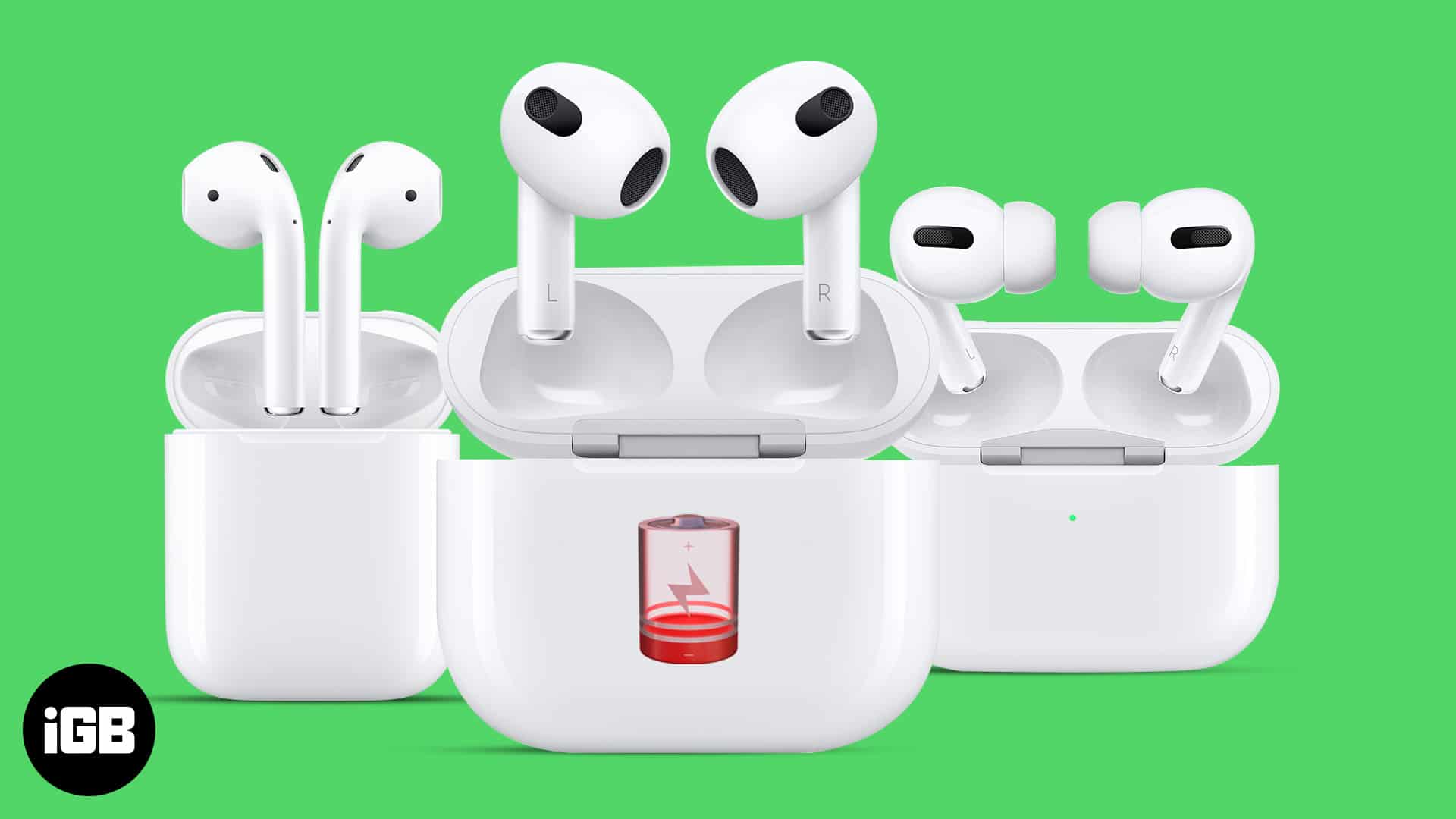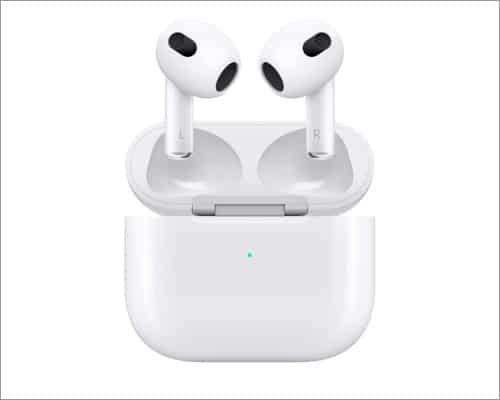AirPods use Apple lithium-ion batteries as they are rechargeable and provide the best possible battery life. However, there is an upper limit on charge cycles, after which you must dispose of the AirPods as you cannot replace their batteries.

To ensure your AirPods last a long time and extract the best battery life, here are a few steps you should consider following.
- What is the average battery life of AirPods?
- Indications your AirPods battery health has deteriorated
- How to maintain the battery life of AirPods
What is the average battery life of AirPods?
Listed below are all the AirPods launched as of writing this article and the battery life claimed by Apple,
- AirPods 1st Gen: 5 hours audio playback and 2 hours talk time on a single charge.
- AirPods 2nd Gen: 5 hours audio playback and 3 hours talk time on a single charge.
- AirPods 3rd Gen: 5 hours audio playback and 4 hours talk time on a single charge.
- AirPods Pro: 4.5 hours audio playback and 5 hours talk time on a single charge.
- AirPods Pro 2nd Gen: 6 hours of listening time and about 5.5 hours with Spatial Audio and Head Tracking enabled.
Indications your AirPods battery health has deteriorated
The figures above are approximate numbers that help provide users with an idea regarding the battery life of their AirPods. You may get higher or lower playback times depending on the volume you play them on.
1. Reduced audio playback times
Suppose the listening time is drastically less than the figures above. In that case, it is the first indicator that the battery health of your AirPods has deteriorated or is at least beginning to deteriorate. If your AirPods are within the warranty period, contact Apple Support, as there are chances you might get a replacement for the same.
2. AirPods sound hushed
Notice that your AirPods are not as loud as your first got them? Also, not everyone will be able to notice this issue because it is a gradual process, and so users usually get accustomed to lowering volumes eventually. Loss of volume is another indicator of the decline of the AirPods battery health.
3. AirPods stop working
If you’ve been using your AirPods for a couple of years now and they suddenly stop working, one of the reasons for this can be that the battery is dead and no longer functional. Before drawing conclusions, go through our guide on how to fix AirPods not charging, and if none of the steps are fruitful, it’s time to bid adieu to your AirPods.
How to maintain the battery life of AirPods
I’m sure you’ve heard “Prevention is better than cure,” and with AirPods, it is taken one step further as the repairability of AirPods is not only poor but non-existent. So make sure to follow the preventive measures listed below, which one should take to ensure the longevity of their AirPods.
1. Turn on optimized charging
Optimized charging is on by default for AirPods 3rd generation and AirPods Pro. All you need to do is connect it to an iPhone, iPad, or Mac. Optimized charging learns your charging patterns over time and avoids charging your AirPods above 80%. If you want to check if optimized charging is tuned by following these steps,
- Connect AirPods to your iPhone or iPad.
- Open Settings.
- Navigate to Bluetooth and tap on “i” next to Bluetooth devices.
- You can now see if Optimized charging is turned on or off.
2. Avoid high temperatures
It is well-known that batteries do not respond well to extreme temperatures, especially heat. Batteries tend to bulge, form bubbles, or even stop working when exposed to heat for longer durations.
While Apple has made the AirPods with their use case and place in mind, they function well even in hot weather. Nonetheless, avoiding leaving the AirPods exposed to direct sunlight is better. Make sure to carry and store them without excessive exposure to heat.
3. Use Apple-certified accessories to charge

Yes, cheaper alternatives to lighting cables and power adaptors are available in the market. However, make sure to use genuine Apple accessories or at least MFI-certified accessories, as this would deliver the required power and be useful in the long term to help maintain the battery health of AirPods.
4. Store AirPods in their case

The AirPods case is dual-purpose. They charge the AirPods and also help carry them. When not in use, ensure to put the AirPods back in the charging case, which turns them off and charges them. It is better to not drain lithium-ion batteries below 20% repeatedly, and putting the AirPods back in their case also helps maintain the battery life.
5. Don’t leave AirPods uncharged
As mentioned above, you should avoid draining lithium-ion batteries below 20%. AirPods charge when you place them back in the case, so make sure to keep the AirPods case charged. If AirPods are left uncharged for a long duration, you might run into issues with the battery not retaining a charge.
6. Stop fidgeting with the AirPods case
If you like to fidget with things, get a couple of fidget toys to keep you busy. But don’t treat your AirPods like a fidget toy. Opening and closing the AirPods case lid over and over will lead to a loss in battery life. AirPods turn on when you open the case’s lid. If you keep doing so repeatedly, it will lose battery, damaging the AirPods battery’s health in the long run.
I hope these steps help you maintain the battery health of your AirPods and help you extract the maximum life out of them. If you have any other doubts, leave them in the comments below, and I will make sure to help you out.
Read more:

